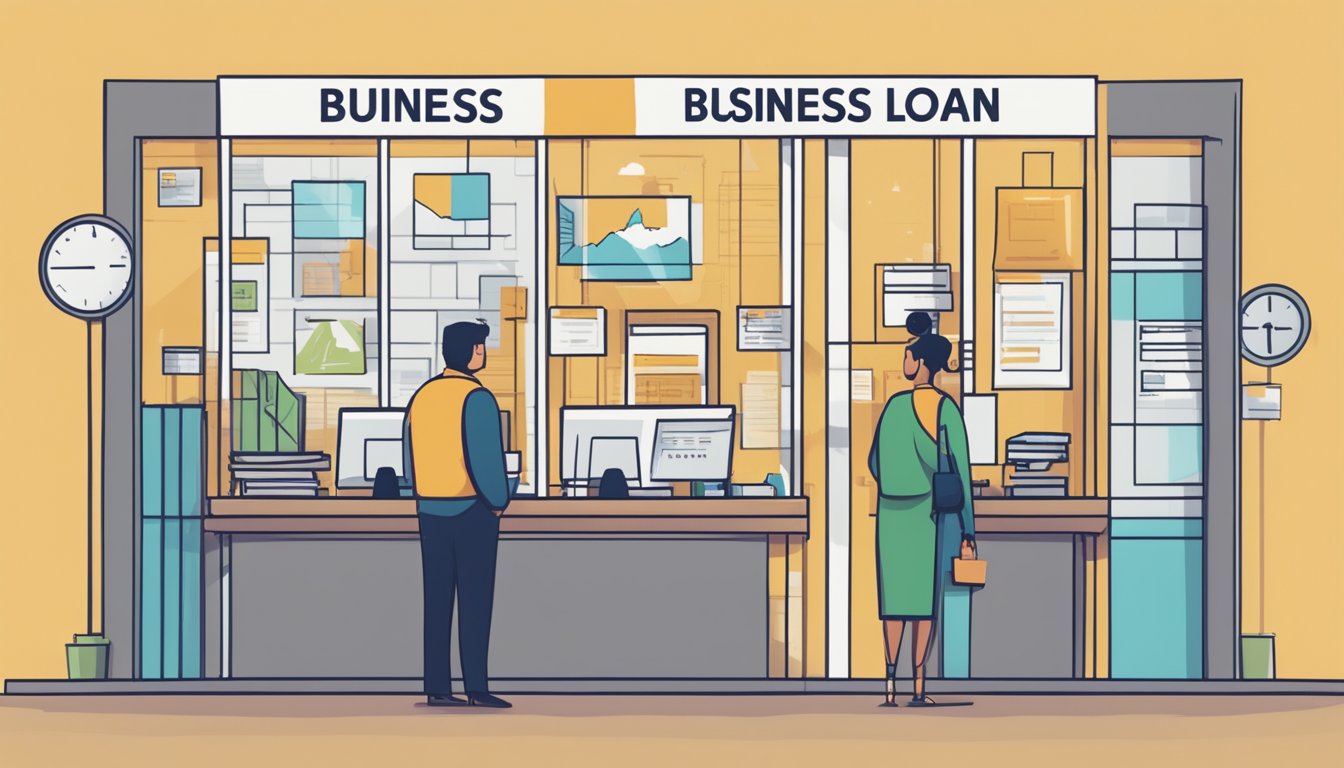When starting a business, you may find yourself in need of financial assistance. There are two main types of loans that you can consider: business loans and personal loans. While both options can provide the funding you need, there are significant differences between the two that you should be aware of.

Business loans are specifically designed for business purposes and are typically offered by banks or other financial institutions. These loans can be used to cover a range of expenses, including equipment purchases, inventory, and payroll. Personal loans, on the other hand, are intended for personal use and can be used for a variety of purposes, including starting a business.
When deciding between a business loan and a personal loan, it’s important to consider your specific needs and circumstances. Factors such as your credit score, business plan, and financial history will all play a role in determining which type of loan is right for you. Additionally, you’ll want to consider the interest rates, repayment terms, and fees associated with each type of loan.
Key Takeaways
- Business loans are specifically designed for business purposes, while personal loans can be used for a variety of purposes.
- Your credit score, business plan, and financial history will all play a role in determining which type of loan is right for you.
- When deciding between a business loan and a personal loan, it’s important to consider the interest rates, repayment terms, and fees associated with each type of loan.
Understanding Business Loans and Personal Loans

When you need financial assistance, you can choose between a business loan and a personal loan. Both types of loans have their own unique features that cater to different needs.
Key Features of Business Loans
Business loans are loans specifically designed for business purposes. They are intended for businesses that need to borrow a large sum of money to cover expenses such as expansion, equipment purchases, and working capital. Business loans typically have a higher maximum amount than personal loans, allowing businesses to borrow more money.
Business loans may require collateral, such as property or inventory, to secure the loan. Lenders may also look at the business’s credit score and revenue to determine eligibility for the loan. Business loans may have competitive interest rates and repayment terms, but they may also come with additional fees such as origination fees or application fees.
Key Features of Personal Loans
Personal loans are loans intended for personal use, such as paying for a wedding, home renovations, or consolidating debt. Personal loans typically have a lower maximum amount than business loans, making them ideal for smaller expenses.
Personal loans may require a good credit score and credit history to qualify for the loan. Lenders may also look at your income and employment status to determine eligibility for the loan. Personal loans may have a fixed interest rate and repayment term, making it easier to budget monthly payments.
Comparing Interest Rates and Repayment Terms
When comparing business loans and personal loans, interest rates and repayment terms are important factors to consider. Business loans may have lower interest rates than personal loans, but they may also come with additional fees. Personal loans may have a higher interest rate, but they typically have a fixed repayment term that makes it easier to plan for monthly payments.
It’s important to compare the APR (Annual Percentage Rate) of each loan to determine which one offers a better deal. The APR includes the interest rate and any additional fees associated with the loan. A lower APR means you’ll pay less in interest and fees over the life of the loan.
In conclusion, when deciding between a business loan and a personal loan, consider your specific financial needs and eligibility requirements. Both types of loans have their own unique features that can help you achieve your financial goals.
Criteria and Eligibility for Loans

When it comes to obtaining a loan, there are certain criteria and eligibility requirements that must be met. Whether you’re looking for a business loan or a personal loan, lenders will evaluate your application based on a variety of factors to determine whether or not you qualify for financing.
Qualifying for a Business Loan
To qualify for a business loan, you will need to provide information about your business, such as your business credit history, financial statements, and other relevant documents. Lenders will evaluate your business based on cash flow, financial projections, and demand for your products or services.
Additionally, you may need to provide collateral or a personal guarantee to secure the loan. The amount you can borrow will depend on your business’s financial health, creditworthiness, and the lender’s lending limits.
Qualifying for a Personal Loan
Qualifying for a personal loan is generally easier than qualifying for a business loan. To apply for a personal loan, you will need to provide information about your income, employment, and credit history. Lenders will evaluate your application based on your credit score, debt-to-income ratio, and other factors.
Personal loans are typically unsecured, meaning you won’t need to provide collateral or a personal guarantee. However, the amount you can borrow may be lower than with a business loan.
The Impact of Credit Scores on Eligibility
One of the most important factors that lenders consider when evaluating loan applications is the borrower’s credit score. A good credit score can improve your chances of being approved for a loan and can also help you qualify for better loan terms, such as lower interest rates and longer repayment periods.
If you have a poor credit score, you may still be eligible for a loan, but you may need to provide collateral or a personal guarantee to secure the loan. Additionally, you may be subject to higher interest rates and shorter repayment periods.
Overall, whether you’re looking for a business loan or a personal loan, it’s important to understand the qualification requirements and loan terms before you apply. By doing your research and preparing your application carefully, you can improve your chances of being approved for financing and securing the funding you need to achieve your goals.
Frequently Asked Questions

What are the advantages and disadvantages of choosing a business loan over a personal loan?
When deciding between a business loan and a personal loan, it’s important to consider the advantages and disadvantages of each. A business loan is designed specifically for business-related expenses, meaning that you can use the funds to invest in your business and help it grow. However, business loans often come with stricter eligibility criteria, higher interest rates, and shorter repayment terms than personal loans.
On the other hand, a personal loan can be used for any purpose, including business expenses. Personal loans typically have lower interest rates and longer repayment terms than business loans. However, using a personal loan for business expenses can make it harder to keep track of your finances and separate your personal and business expenses.
Can I legally utilise a business loan for personal expenses?
No, it is not legal to use a business loan for personal expenses. Business loans are designed specifically for business-related expenses, and using the funds for personal expenses can result in legal consequences. If you need funds for personal expenses, it’s best to consider a personal loan instead.
How do the interest rates typically compare between personal loans and business loans?
Interest rates for personal loans are typically lower than those for business loans. This is because personal loans are often unsecured, meaning that they don’t require collateral, while business loans often require collateral. Additionally, personal loans typically have longer repayment terms than business loans, which can help keep the interest costs down.
What are the eligibility criteria differences between personal and business loans?
The eligibility criteria for personal loans and business loans can vary significantly. Personal loans typically require a good credit score, a steady income, and a low debt-to-income ratio. Business loans, on the other hand, require a strong business plan, a good credit score, and collateral in many cases. Additionally, business loans may require a certain amount of time in business and a minimum annual revenue.
In what scenarios should a startup consider a personal loan instead of a business loan?
Startups may consider a personal loan instead of a business loan if they don’t meet the eligibility criteria for a business loan or if they need funds quickly. Personal loans typically have less stringent eligibility criteria than business loans, and the funds can often be disbursed quickly. However, startups should be aware that personal loans can have higher interest rates than business loans and may not offer as much funding as a business loan.
What are the typical repayment terms for business loans versus personal loans?
Repayment terms for business loans and personal loans can vary significantly. Business loans typically have shorter repayment terms than personal loans, with terms ranging from a few months to a few years. Personal loans, on the other hand, can have repayment terms of up to 7 years or more. Additionally, business loans often require regular payments, while personal loans may offer more flexibility in terms of payment schedules.




